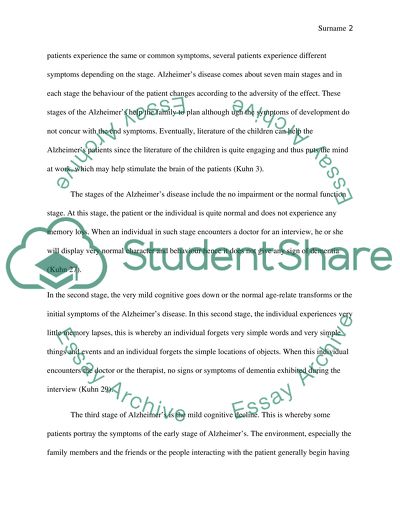Cite this document
(“Children's Literature use is theraputic to Alzheimers patients Research Paper”, n.d.)
Retrieved from https://studentshare.org/literature/1497212-children-s-literature-use-is-theraputic-to
Retrieved from https://studentshare.org/literature/1497212-children-s-literature-use-is-theraputic-to
(Children'S Literature Use Is Theraputic to Alzheimers Patients Research Paper)
https://studentshare.org/literature/1497212-children-s-literature-use-is-theraputic-to.
https://studentshare.org/literature/1497212-children-s-literature-use-is-theraputic-to.
“Children'S Literature Use Is Theraputic to Alzheimers Patients Research Paper”, n.d. https://studentshare.org/literature/1497212-children-s-literature-use-is-theraputic-to.


